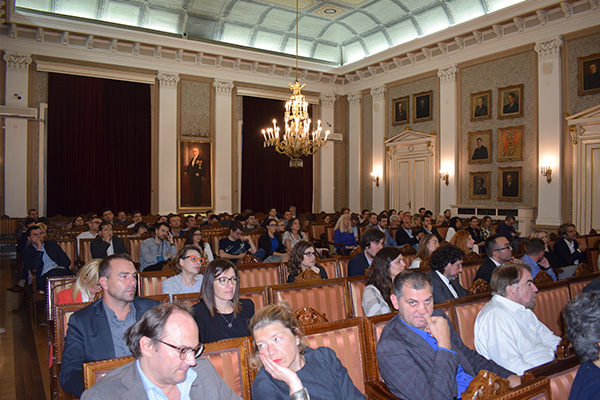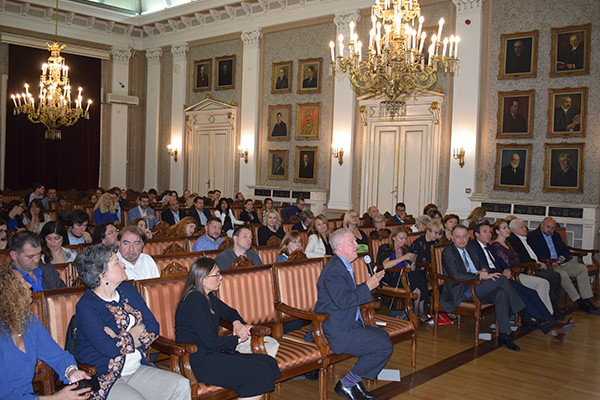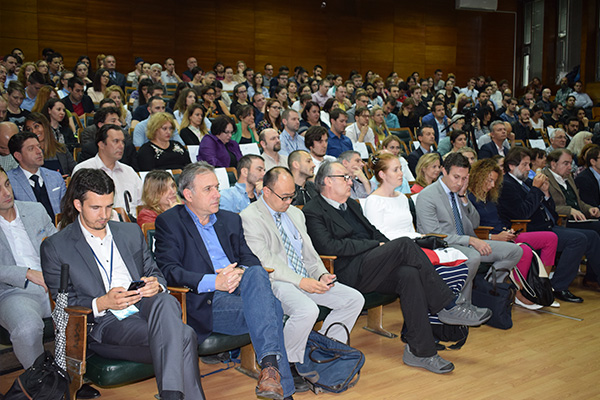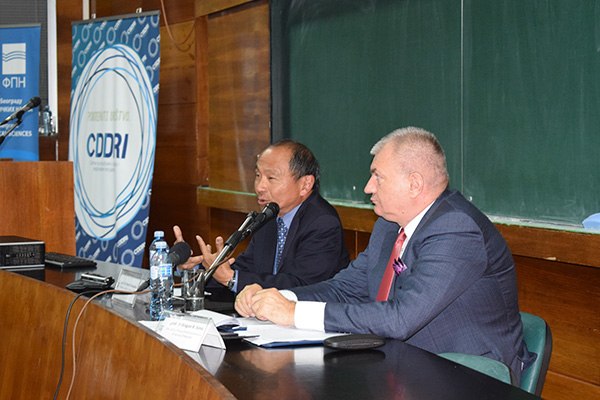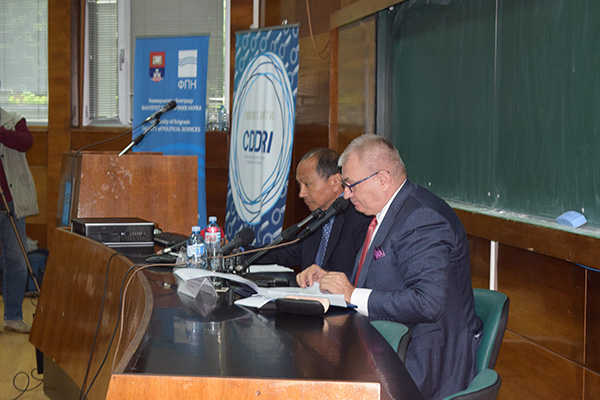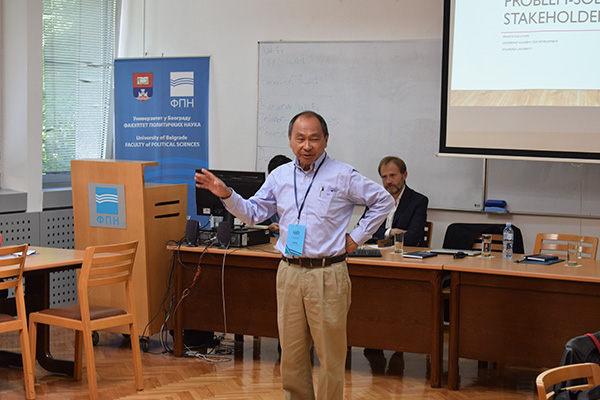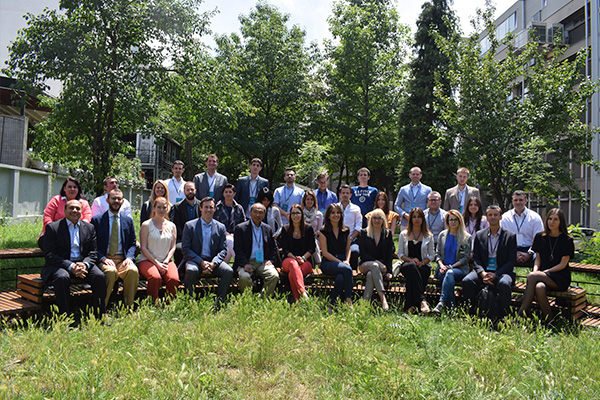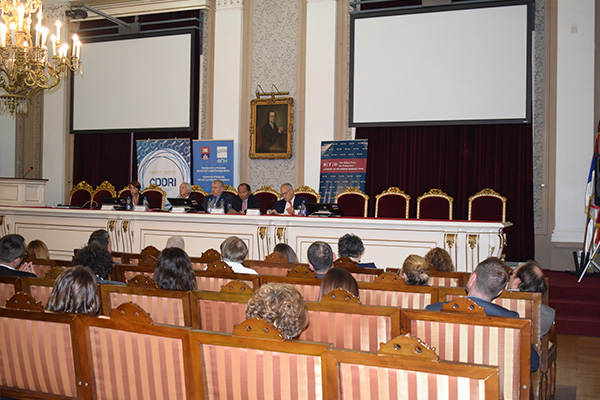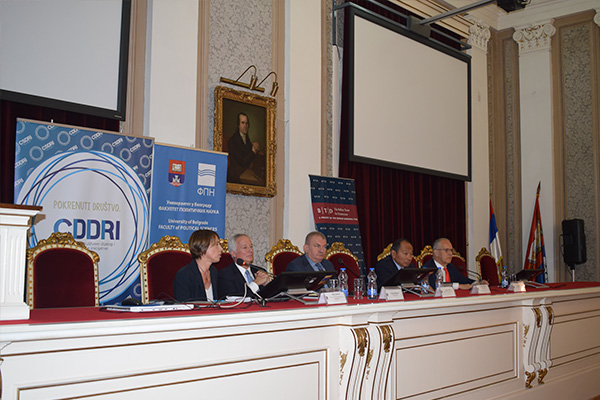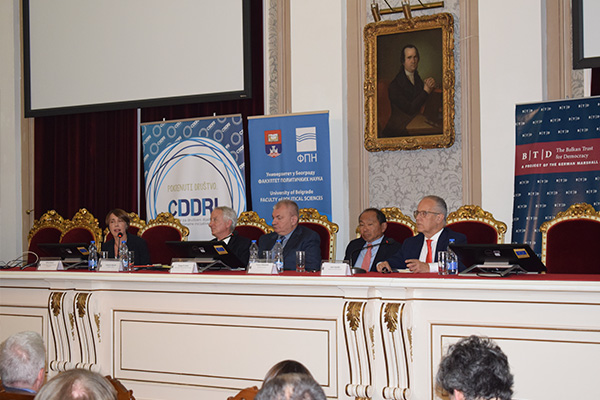Leadership Academy for Development

Leadership Academy for Development
The Role of Public Policy in Private Sector Development
In addition to the traditional cooperation with the Faculty of Political Science, University of Belgrade, CDDRI has had the opportunity to collaborate on various projects with other universities and institutes from the country and abroad, with special emphasis on cooperation with the prestigious Stanford University in California. (USA).
From June 25 to 29, 2018, in partnership with the Center for Democracy, Development, and Rule of Law of Stanford University (CDDRL) and the Faculty of Political Sciences, our organization conducted a professional development program named Leadership Academy for Development: The Role of Public Policy in Private Sector Development. The program was implemented with the financial and logistical support of the Balkan Trust for Democracy of the German Marshall Fund of the United States.
The five-day intensive training under the program was led by eminent Stanford University professors Francis Fukuyama and Michael Bennon.
During the five days of the program, which was conducted in English, through a combination of lectures, training, and simulations course participants had the opportunity to improve their knowledge in the field of finance, management, and public policy, as well as to acquire additional leadership skills.
During the program, groups of participants developed a total of six different projects aimed at adopting public policies that would help the development of the private sector in the Western Balkans.
The interest in the program was extremely high, so the organizing committee had a difficult job to select a total of 30 young professionals with strong leadership capacities from the economy, public administration and local self-government, academic community, and civil society from the entire Western Balkans.
Among other things, program participants were employed by the European Bank for Reconstruction and Development (EBRD), Delta Holding, Air Serbia, Propulsion agency, the National Alliance for Local Economic Development (NALED), the Center for Advanced Economic Studies, and the Center for Social Policy, the Institute of Economic Sciences, the Institute for Political Studies, Nedeljnik magazine and other companies and organizations from the region.
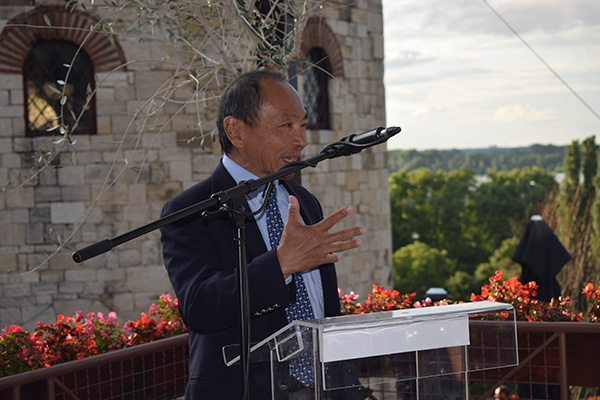
In addition to this program, our organization used the stay in Belgrade of one of the most important political scientists of today, Francis Fukuyama, to organize events for other members of the professional and interested public.
In cooperation with the University of Belgrade, a panel discussion on ‘The Dynamics of Social Inequalities and Their Impact on the State’ was organized on the evening of June 26 in the ceremonial hall of the Rectorate.
Professor Fukuyama, then the former US Ambassador to Serbia Cameron Munter (East-West Institute, Washington), Ivan Vejvoda (Institute for Human Studies, Vienna), and Milica Delević (European Bank for Reconstruction and Development, London) spoke at the discussion. The discussion was moderated by the Dean of the Faculty of Political Sciences, Prof. Dr. Dragan R. Simić, and the ceremonial hall of the Rectorate was filled to the brim with representatives of the academic and scientific community, the economy, the non-governmental sector, public administration, and the diplomatic corps.
We also organized an event open to the general public, and primarily political science students.
In cooperation with the Faculty of Political Sciences, Professor Fukuyama’s lecture on ‘Revisiting the End of History’ was organized on Wednesday, June 27. After an introductory speech by Dean Dragan R. Simić, Professor Fukuyama presented the evolution and revision of his famous thesis on the ‘end of history’, almost thirty years after its first mention in 1989, and then answered numerous questions from the audience.
The amphitheater of the Faculty of Political Sciences was small to seat all interested students and citizens, so the passages and the hall in front of the amphitheater were almost completely filled. During his stay in Belgrade, Professor Fukuyama gave several interviews (Nedeljnik, Danas, N1), and the Serbian media followed the visit of the famous professor to Belgrade with great interest.

